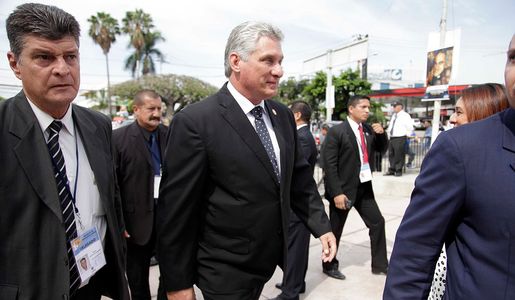Hare Interviewed on Foreign Investment in Cuba

Amb. Paul Webster Hare, Senior Lecturer at the Frederick S. Pardee School of Global Studies at Boston University, was interviewed for a recent article examining Cuba’s bid to attract more foreign investment.
Hare was interviewed for a May 23, 2018 article in Latin America Advisor entitled “Can Cuba’s New President Attract Foreign Investors?”
From the text of the article:
“The European Union has a long foreign investment history with Cuba. Indeed, 20 years ago it was the source of more than 70 percent of all foreign investment. Then Fidel Castro closed the door, and most existing investors left or saw their property expropriated. Some were imprisoned without charge. Thereafter, Venezuela became the only investment and trade partner that mattered. Now, Venezuelan largesse is drying up, and Cuba is negotiating again with the European Union. Many substantial problems exist. Important sectors such as agriculture, financial services and retail remain closed to foreign investment. Investors must still employ only those chosen by the state and pay their salaries through the state. These policies are to reward loyalty and limit the inequality that foreign investment stimulates. Beyond the direct impact of the investments, other challenges must be resolved. How far will foreign investors in areas like tourism be permitted to compete directly with the military-owned conglomerates? And will Cuban-Americans and self-employed Cubans be able to partner with overseas investors? Meanwhile, the recent project announcements will remind Cuba watchers that many get the green light but few actually happen. Bureaucracy is often Cuba’s answer to overzealous entrepreneurs. If Díaz-Canel wants to signal change, he must address these points. I doubt that new U.S. restrictions will now deter investors.
Amb. Hare teaches classes at Boston University on Diplomatic Practice, Arms Control, Intercultural Communication and on Cuba in Transition. His novel, “Moncada – A Cuban Story”, set in modern Cuba, was published in May 2010. His book “Making Diplomacy Work; Intelligent Innovation for the Modern World.’ was published in early 2015.